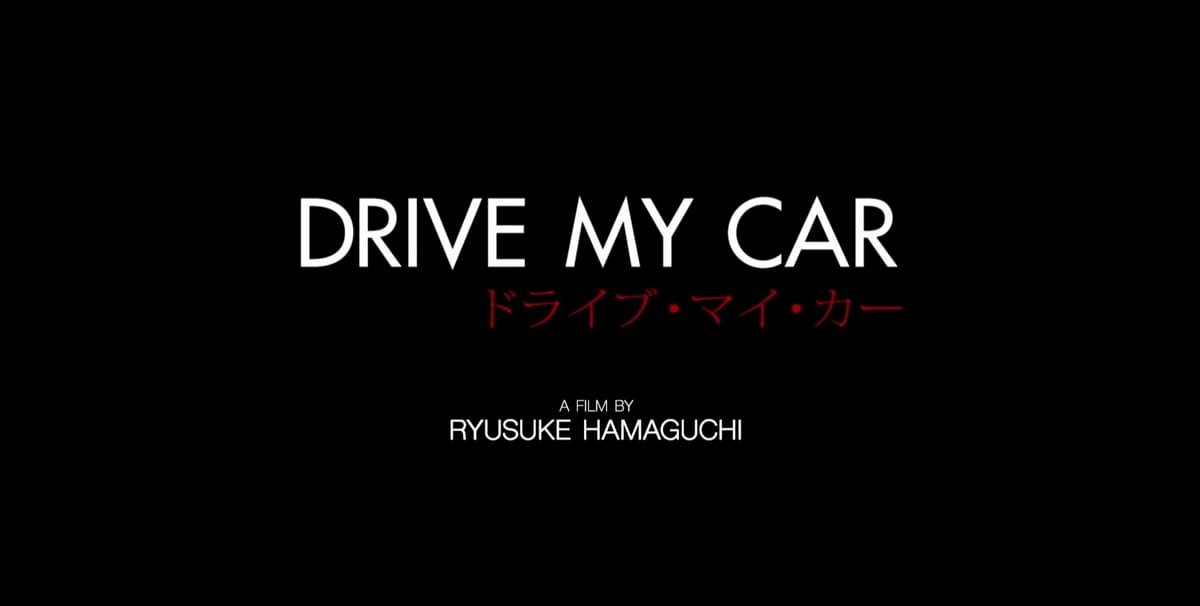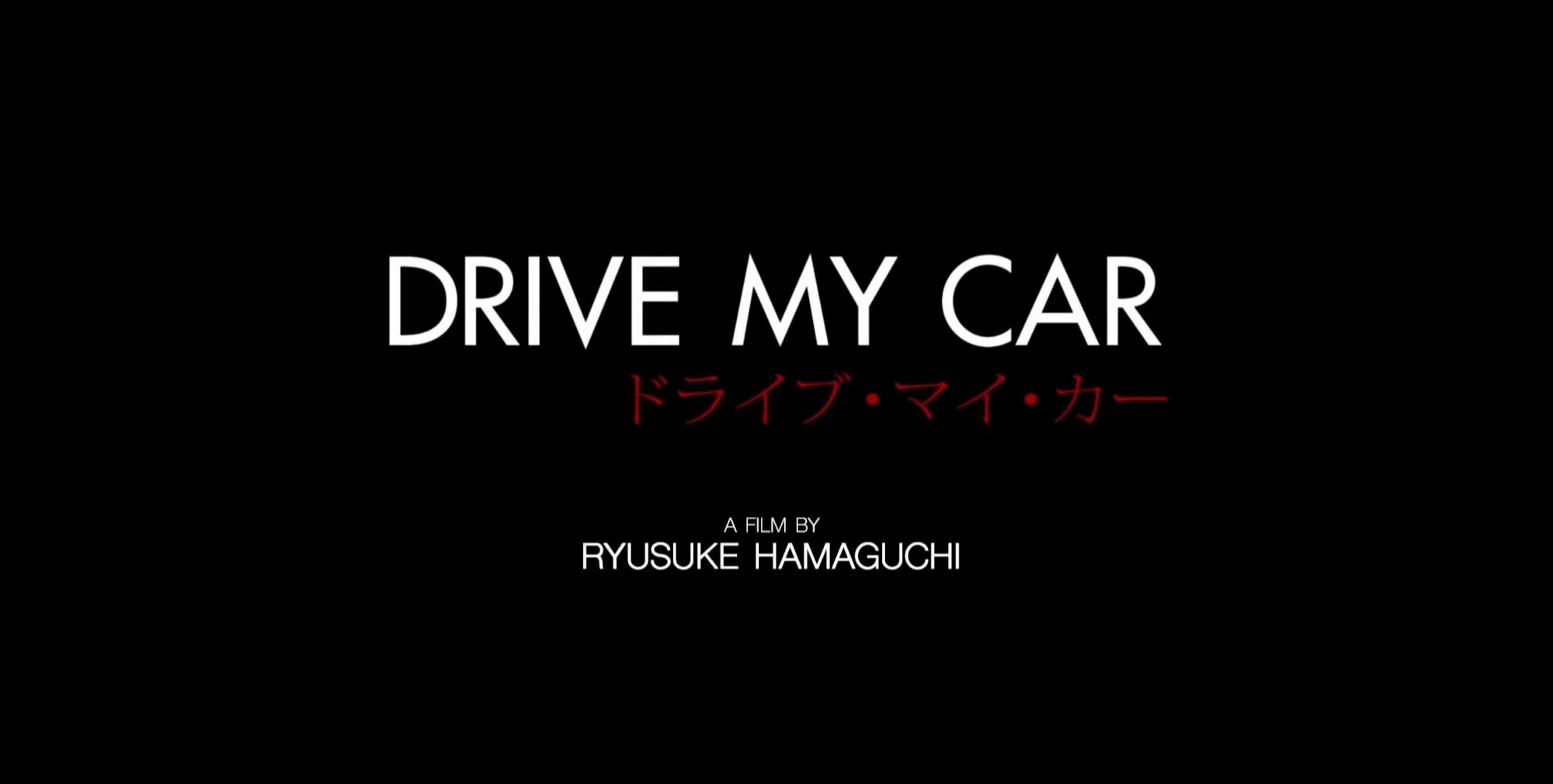“Drive My Car”: Meaning and Mourning in Motion
Joe Sweeney '25 reviews "Drive My Car," the first Japanese film to be nominated for a Best Picture, which follows an aging theatre director who bonds with his young chauffeur after the death of his wife.


To get his production of Russian playwright Anton Chekhov’s masterpiece “Uncle Vanya” off the ground, theater director Yusuke Kafuku (Hidetoshi Nishijima), the protagonist of “Drive My Car,” makes his actors spend many days in table reads. At this point, nothing in the production is physical. Kafuku urges them to cast their eyes down at the page, reduce their voices to slow monotones, unearth the text’s vital nuances — and then grind them to dust.
As I’m watching, what I feel is what I imagine anyone else might feel in the face of something so tedious: nothing at all, outside of a general state of responsiveness — responding to line after line, word after word. I’m waiting for something to say: start moving. And yet that expectation for motion, central to any story, is so at odds with the barren place I’m standing — I wonder to myself: How will I?
From that space, an actor knocks the table to signal the end of their line. Hydraulically, a door opens in the corner of my mind. A break from the monotony. An invitation: “Easy. Just hop in”. Alright. Let’s see if I can manage to pick up where they left off.
Before seeing “Drive My Car,” I had never heard of now four-time Oscar-nominated writer and director Ryusuke Hamaguchi. If the film is anything to go by, though, his career was destined for a flashpoint. Running just under three hours, it’s the kind of film that will inevitably be described as a “slow-burn.” Yet to me, the film’s brilliance is that it captures what that term often obscures, what is directly implied by the words themselves. “Slow-burn” usually means a movie whose “scenes develop slowly, methodically toward an explosive boiling point.” They’re supposed to be about the thin trail of smoke, and the revelation it leads to. Hamaguchi, on the other hand, takes the phrase at face value to reveal something far more startling: everything is already on fire.
The movie begins with Kafuku, a respected actor who is having domestic issues with his wife, Oto (Reika Kirishima), a screenwriter. Or, more accurately, has been having them for the past 15 years, since their daughter passed away. Nothing overtly dramatic is going to happen between two people bonded by their dead child — no shouting, no breakdowns, no recriminations. The viewer understands that everything they’ve been brave enough to say has, somewhere along the line, already been said.
What remains is stiltedness: whole conversations flare up in the imagination, only to be just as suddenly obscured. When Oto introduces a young actor, Koji (Masaki Okada), to Kafuku, the actor compliments Kafuku on how wonderful his wife is. Oto’s face drops. She leans in: “Don’t call me that.” Kafuku quickly asks the young man a question to smooth the moment over. But that moment lives on — like a thin cloth draped over a candle. The flame is veiled, but light still pulses through.
One morning, Oto tells Kafuku that there’s something she wants to talk about when he gets home. When he returns, late at night, he finds her lying on the floor. The next scene is a funeral, low chanting, a framed picture of Oto — congenial. The young actor from earlier is there; there’s something desperate about the look on his face. Kafuku, meanwhile, is stoic. He doesn’t process the unavoidable question, doesn’t feel like he deserves to ask it: How, why did this happen? Two men, walking down the path from the shrine: “Cerebral hemorrhaging,” one says. The other nods his head. Ah. What a shame.
That’s the answer Kafuku lives with for the next two years. He accepts a residency to cast and direct “Uncle Vanya.” It’s hard to imagine him having done much in the meantime, absorbed in his grief. It’s good, then, that the lone image the film gives us fills that two-year space with such oozing finesse: Kafuku in the titular car, a Red Saab 900. Cruising around the prefecture, reciting Vanya’s lines with a tape his wife had recorded for him. An aimless, worthless life, to be sure, yet one that Kafuku can’t help but feel is deeply earned, a consolation for the loss of his last connection to his daughter.
Which is why, when he arrives at his residency, he is so troubled by an unexpected clause in his contract. He will not be allowed to drive his own car. They’ve hired a driver to take him to and from his hotel. Kafuku is skeptical. He argues: My car is where I practice my lines. It has all kinds of mechanical oddities. These inconsequential details are Kafuku’s way of taking a stand. He has spent his life letting things slide. Not this.
Why? It’s hard to explain. There’s something about the motion of a car, of moving through the world completely on your own, that seems to appeal to him. Not the home anyone would imagine in their future. When you’ve ceased to belong anywhere, you learn to inhabit the places that you can. This is one of them for Kafuku. Maybe the only one.
But he’s got a driver now. She’s a young woman in her early 20s. She’s quiet — not shy, just a little detached. She’s been with the company for years, the program director assures Kafuku. She’s never gotten a complaint. Just see if you don’t like her. Still doubtful, Kafuku takes the backseat. It is in this small way, too, that he finally yields control.
I’ve spent so much time on the beginning of this film because I’m convinced there is something special about the way Hamaguchi prepares your emotions to feel Kafuku’s loss. The movie is based on the short story of the same name by internationally celebrated writer Haruki Murakami, from his collection “Men Without Women.” I’ve never read that collection, but I have read and loved many of Murakami’s novels because of the moments where he makes impossible things real on the page. Things that you aren’t supposed to say, to even imagine, in a novel — he makes them happen. These moments unmoor themselves from what the story is supposed to do. And the story flies off on its own. You gotta be close enough to the ground to appreciate how high it goes.
Don’t let the Russian drama fool you. This is a movie about driving, and it’s a movie about the only two people who understand that. Kafuku learns that the young woman, Misaki (Toko Muira), is an impossibly smooth driver. With her at the wheel, he forgets that he’s in a car; he forgets the reasons he wanted to be driving the car. The development of their relationship is soft and understated. There isn’t much to say to someone who understands what makes your life tick better than you do yourself.
Still, this isn’t good enough. Nearing the day of the performance, a shocking incident halts production of the play. Kafuku stands in a barren parking lot, looking cold. Maybe he’s been going in circles all this time, but he’s come far enough to admit it to himself: he knows he killed Oto — even if it’s the only thing he ever really did know about her.
He needed his car. He needed to ride out certain pressures in his life, see where they could take him. Alright. But when the tape started playing, he could’ve stopped it. Let the silence take its due, and force him to confront what he needed to. Instead he just said his lines, slipped right in. He passed his life by.
He looks to Misaki. Where can you go when you’re certain you missed your chance to arrive at the place you were supposed to be?
She knocks on the hood of the car. I know a place. It may not be any good, but if you hop in we can get there. A new line begins. Let’s see if we can pick up where we left off.





Comments ()